The European Molecular Biology Laboratory
Fundamental discoveries answering life sciences’ most challenging questions
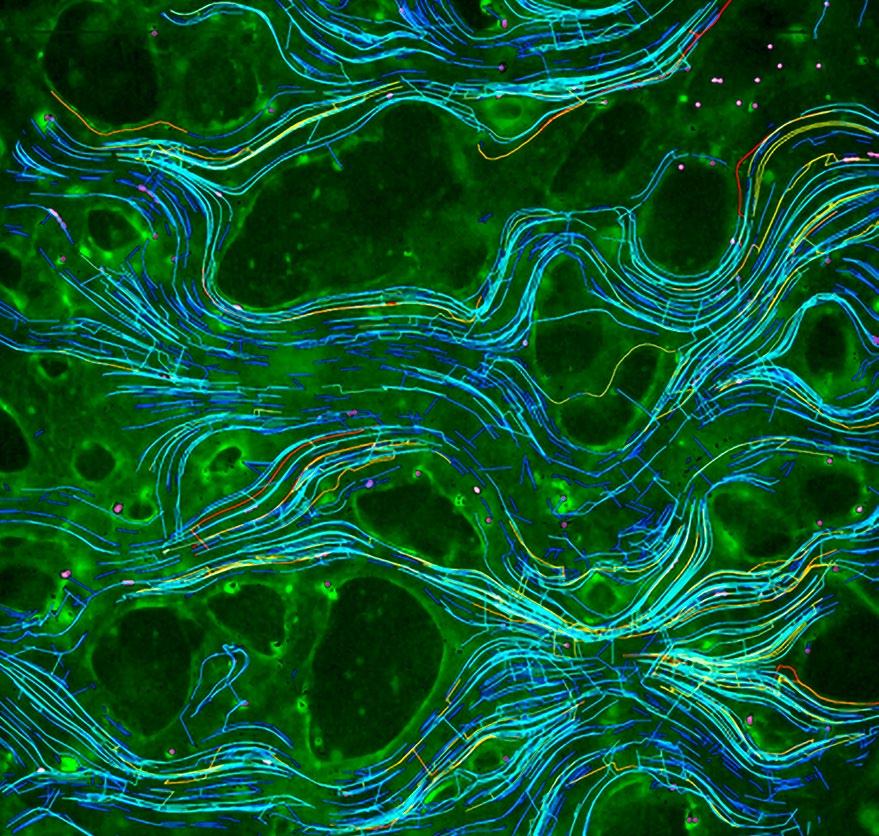
embl.org
Europe’s life sciences laboratory
Always at the frontier of the life sciences, EMBL is committed to advancing knowledge through its impactful fundamental research and providing tools and expertise to scientists in Europe and beyond who explore scientific questions at a molecular level. With its newest five-year programme, Molecules to Ecosystems, EMBL is applying its expertise to studying life in its natural context and exploring molecular mechanisms using fundamental discovery-driven research that can also address societal challenges.
Scientists at all career levels collaborate intensively and use EMBL’s unique world-class technologies to move towards finding meaningful answers to challenging research questions. EMBL’s six sites each contribute different kinds of expertise that foster this unique, collaborative atmosphere. It’s why so many seek out EMBL as their scientific partner of choice and why early-career scientists want to learn in this dynamic environment.
Both within and beyond biological disciplines, experienced scientists value EMBL’s leadership, perspective, and cutting-edge technology. It’s a place to realise scientific visions and conduct next-level multidisciplinary research.
For the 27 member states that govern and fund this unique intergovernmental organisation, new talent and tools migrate home, elevating scientific capacity in these countries and building local alliances and remote partnerships. EMBL’s alumni are a testament to this. Approximately 80% work in member states in positions that push the boundaries of knowledge – in academia, private research enterprises, entrepreneurial pursuits, industry, and education.
Likewise, industry is eager to work with EMBL’s promising fundamental science discoveries to make formidable advances in medicine, agriculture, and other fields.


 Hamburg
Hamburg
2 Europe’s life sciences laboratory
Barcelona Grenoble
EMBL Sites



Local Alliances
EMBL Partnerships
Member States Heidelberg
Prospect Member States
Associate Member States
Hamburg Heidelberg Hinxton Grenoble Barcelona Rome DESY MMPU WSI PSB CRG CSSB QIMR UNSW ANU GARVAN SAHMRI MONASH UW HCEMM SARS HUBRECHT BRAINCITY VU LSC NCMM DANDRITE MIMS FIMM
Rome Hinxton 3
A new era for molecular biology
EMBL’s new scientific programme, Molecules to Ecosystems , ushers in a new era of science in Europe, probing the molecular basis of life in context to tackle global challenges, including the emergence of pathogens, loss of biodiversity, spread of antimicrobial resistance, as well as the impact of pollution, climate change, and food insecurity.
EMBL sets the scene for European molecular biology to reach new heights and provide greater impacts in the next five years and beyond. As the first pan-European biology programme for environmental and human health, it sets out a bold scientific vision that is already inspiring collaboration across disciplines and between academia, industry, foundations, and private research organisations.
Created in 1974, EMBL has five missions that encompass research, scientific services, advanced training, innovation and translation, and integrating the life sciences throughout Europe and beyond.

4
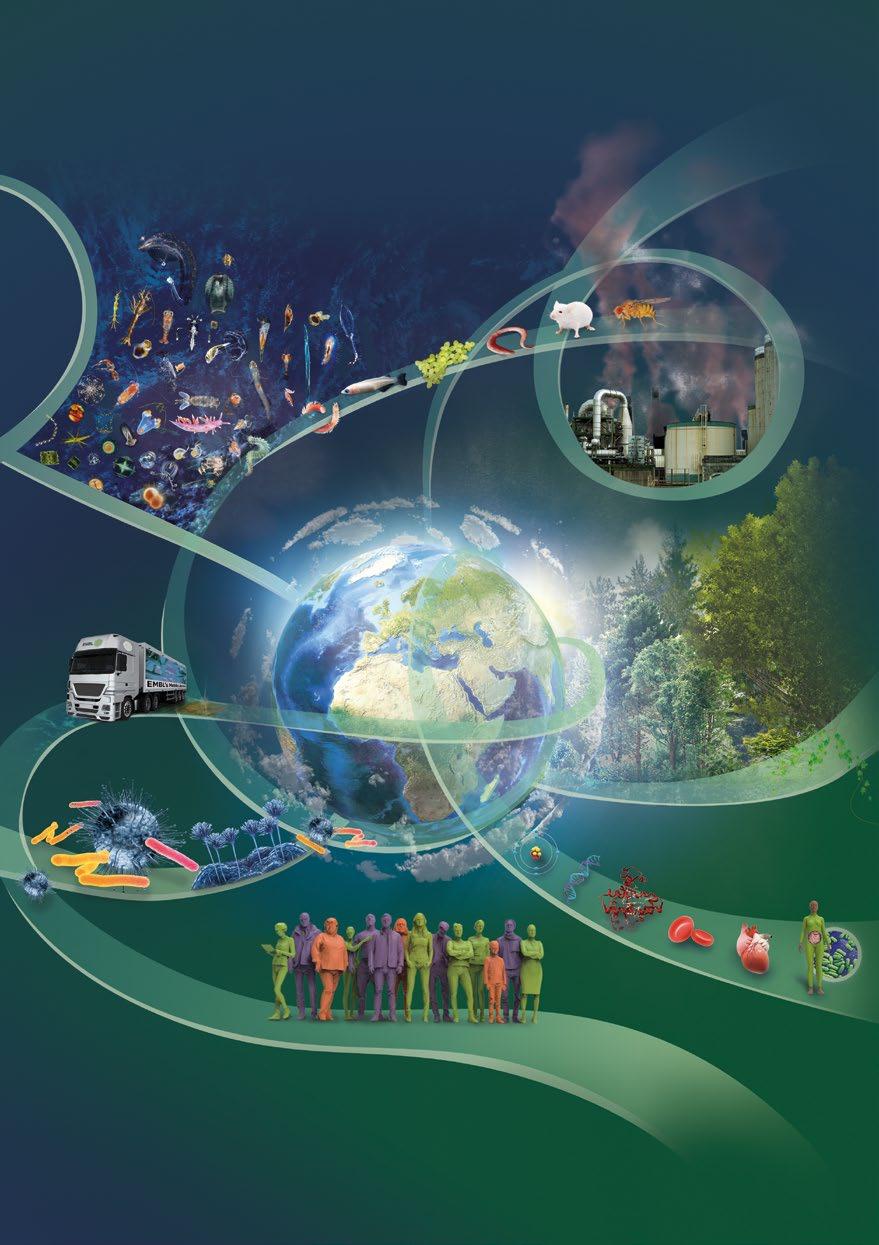
5 Europe’s life sciences laboratory
Impactful research
Research at EMBL is collaborative, open, innovative, and multidisciplinary. It emphasises experimental and computational analyses of biological organisation across scales from molecules to ecosystems. Research areas span a range of biological disciplines, including structural biology, genome biology, cell biology, developmental biology, tissue and organ biology, neurobiology, microbiology, bioinformatics and computational biology, and molecular medicine. Building on and traversing across these areas are EMBL’s new transversal themes that foster new collaborations within and outside of EMBL. These themes – Planetary Biology, Human Ecosystems, Infection Biology, Microbial Ecosystems, Theory, and Data Sciences – approach the most challenging scientific and societal questions from a collaborative and multidisciplinary perspective to fuel a rich economy of knowledge.
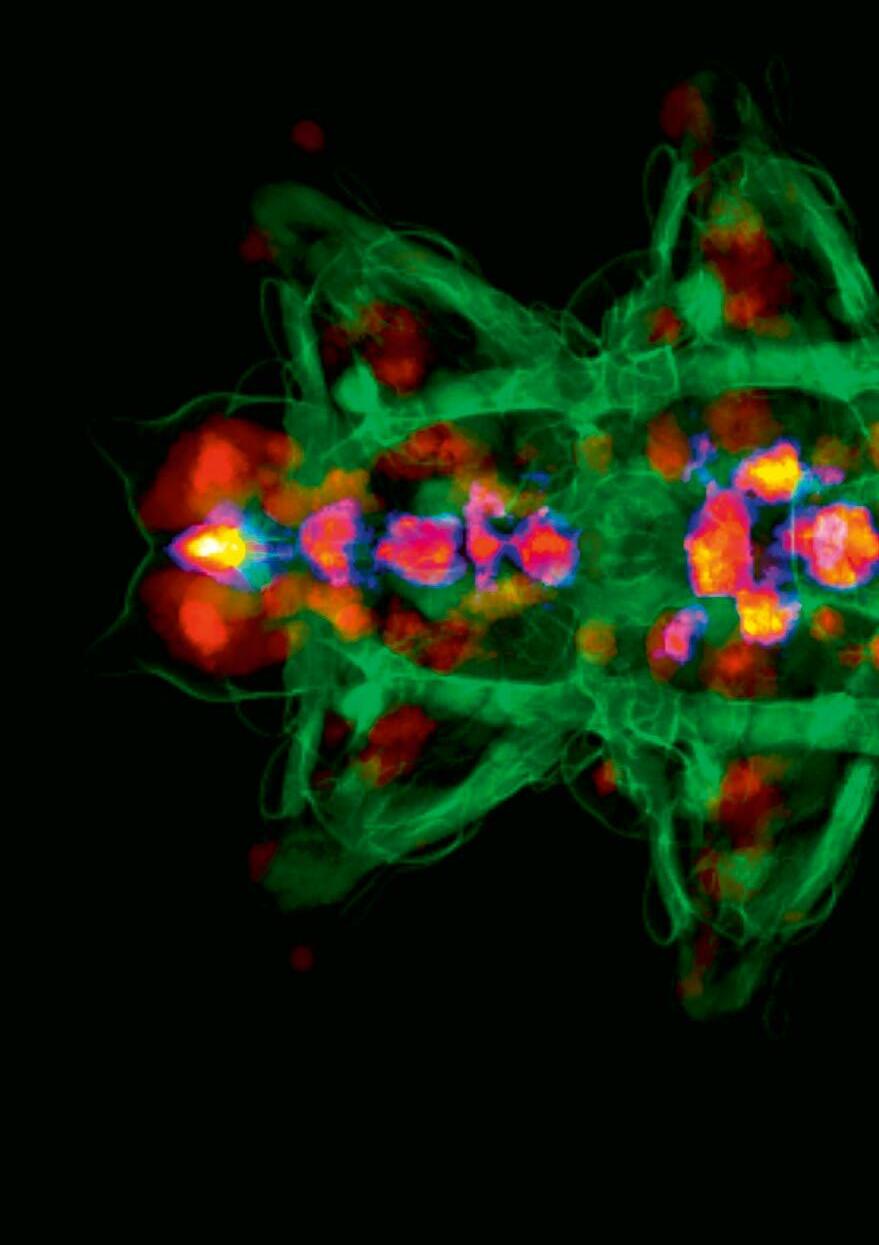
6 Europe’s life sciences laboratory
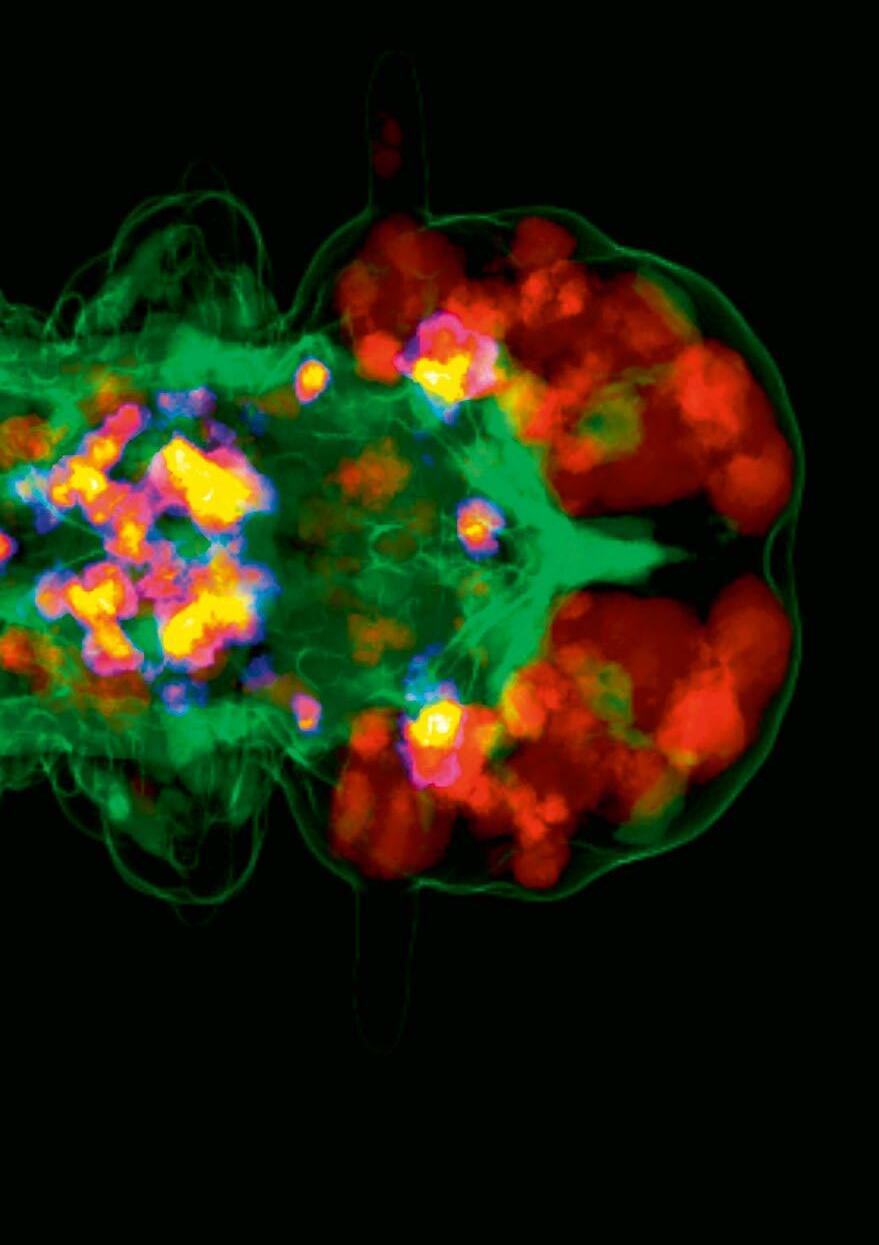
7
How molecular biology research could change our approach to pesticides

As a result of EMBL’s new planetary biology transversal theme, Michael Zimmermann and postdoc Richard Jacoby are two of several EMBL researchers applying molecular biology insights in various ways to better understand pesticide impacts, their degradation, and how to accelerate that degradation. With funding from EMBL’s Environmental Research Initiative, this fundamental research can inform approaches to pollution clean-up and potentially guide a new generation of agro-chemicals – chemicals potent enough for the intended objectives, but that quickly degrade and disappear.
“I’m positive about being at EMBL during this new five-year programme where I’m encouraged to think about and pursue molecular approaches to planetary biology issues,” Jacoby said. “Our modern life has come to depend on the chemical industry for necessary pharmaceutical drugs and agricultural production. If we discontinued their use, what would happen to global health? To agricultural production? Hopefully, we can help others have the information they need to build degradable replacements for these chemicals.”
Impactful research: Case study
8
Credit: Yi-Jie Li/EMBL
Using light and sound to see deeper into biological tissue
Claire Deo has a rainbow of molecular probes that will play a vital role in developing a hybrid microscope that harnesses light, sound, and adaptive optics to take noninvasive microscope imagery to a new level.

Deo’s and Robert Prevedel’s research groups are working together on ‘deep tissue imaging’ technologies. The two combine chemistry and microscopy expertise in this endeavour. Such innovative developments in imaging technology have the potential to be made available to scientists from across Europe through EMBL’s new state-ofthe-art Imaging Centre.
“My group is currently developing molecules that turn on and off in response to stimuli such as light or analytes, to produce fluorescence or photoacoustic signal,” Deo explained. “What drives me is the process of engineering new molecular tools and their applications towards new scientific discoveries. Advancing biology demands robust imaging technology and our efforts in this direction go hand in hand with research in other groups at EMBL, with the goal of establishing new approaches to see deeper into complex tissues.”
Impactful research: Case study
9
Credit: Kinga Lubowiecka/EMBL
Trusted scientific services

EMBL’s scientific services enable scientists from EMBL member states and beyond to access the expertise, technology, and data needed to accelerate their science and address global societal challenges. This represents an important financial value for member states. This is particularly true with EMBL’s European Bioinformatics Institute (EMBL-EBI) which develops and maintains more than 40 open community databases, tools, and software. EMBL-EBI’s data services are among the most comprehensive and integrated in the world and they are open and freely available for everyone to use.
These experimental services span a range of infrastructures and facilities that support academic and industry users throughout Europe and globally. Structural biology and imaging services enable life to be visualised across scales: from atomic snapshots of moving proteins to detailed videos of molecules within cells, tissues, or organisms. Access to this technology and more always comes with guidance and training so users can achieve research goals efficiently and accurately.
10 Europe’s life sciences laboratory
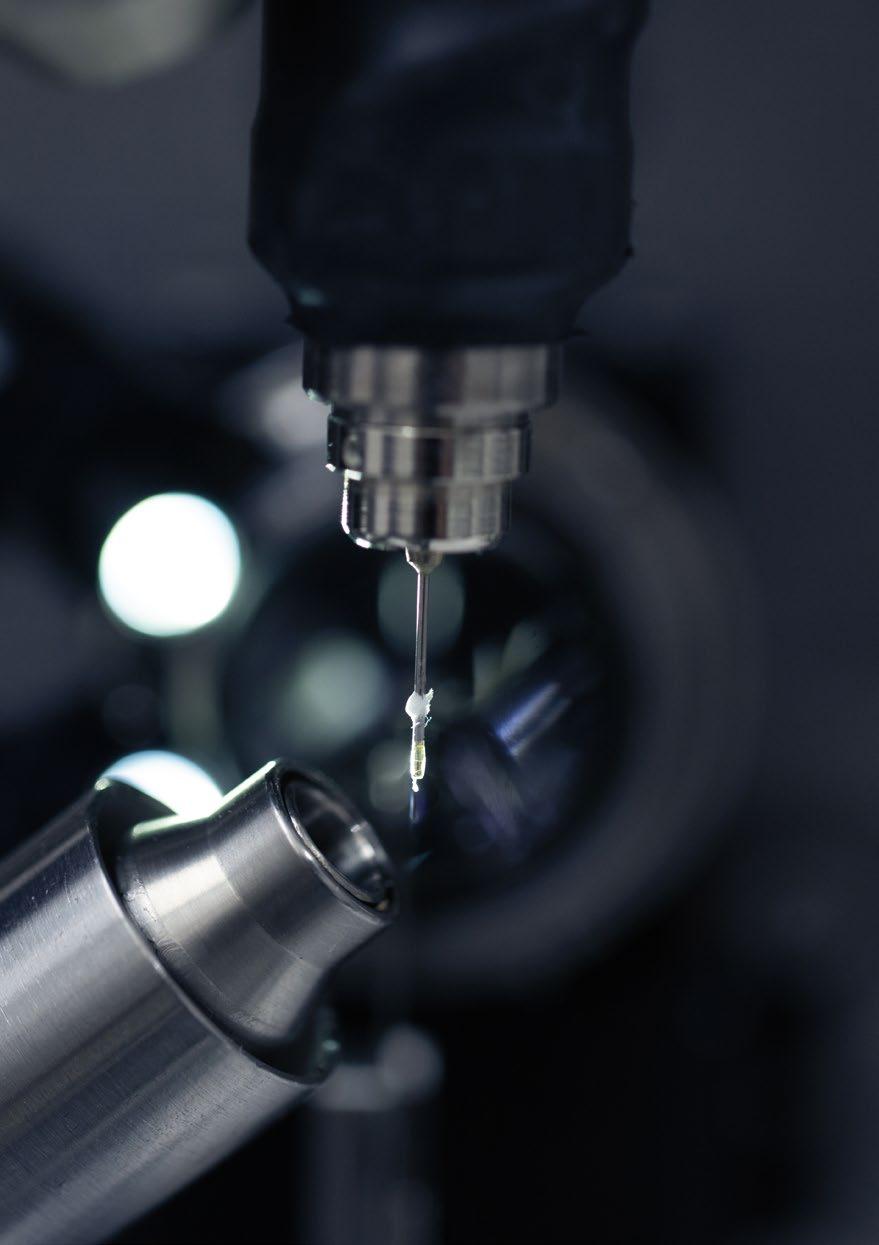
11
Enabling greater access to AI protein predictions
DeepMind and EMBL-EBI have made AI-powered predictions of more than 200 million 3D protein structures freely and openly available to the scientific community via the AlphaFold Protein Structure Database. The database now includes predicted structures for a wide range of species, including plants, bacteria, animals, and other organisms. AlphaFold has already shown its impact in areas such as improving our ability to fight plastic pollution, gaining insight into Parkinson’s disease, increasing the health of honey bees, understanding how ice forms, tackling neglected diseases such as Chagas disease and Leishmaniasis, and exploring human evolution.
EMBL scientists like Sameer Velankar, Team Leader at EMBL-EBI’s Protein Data Bank in Europe, were behind making this unparalleled resource so widely accessible.
“AlphaFold has sent ripples through the molecular biology community. In the past year alone, over a thousand scientific articles published on a broad range of research topics which use AlphaFold structures,” Velankar said. “I have never seen anything like it.”

Trusted scientific services: Case study
12
Credit: Jeff Dowling, Karen Arnott/EMBL
Expertise to help guide quality assurance
in mRNA-based vaccines
BioNTech, which joined Pfizer to develop one of the first messenger RNA vaccines for COVID-19, has been using EMBL Hamburg structural biology services while researching and developing their vaccine platform. One of the EMBL structural biologists involved was Cy Jeffries from the Small-angle X-ray Scattering (SAXS) team.
As Jeffries points out, it takes a powerful tool like SAXS to peer inside the lipid-RNA nanoparticles of an mRNA vaccine. SAXS allows industry researchers to ensure these nanoparticles continue to adhere to the RNA, that the RNA stays fresh, and that it can survive different kinds of storage and even the final push from the syringe into a patient’s arm.
“SAXS was indispensable to confirm if the switch actually works,” Jeffries said. “SAXS is at the forefront of developing new technologies and processes in biomedicine – an invaluable tool available to all scientists, including in industry.”

Trusted scientific services: Case study
13
Credit: Dorota Badowska/EMBL
Advanced training for next-generation scientists and science leaders
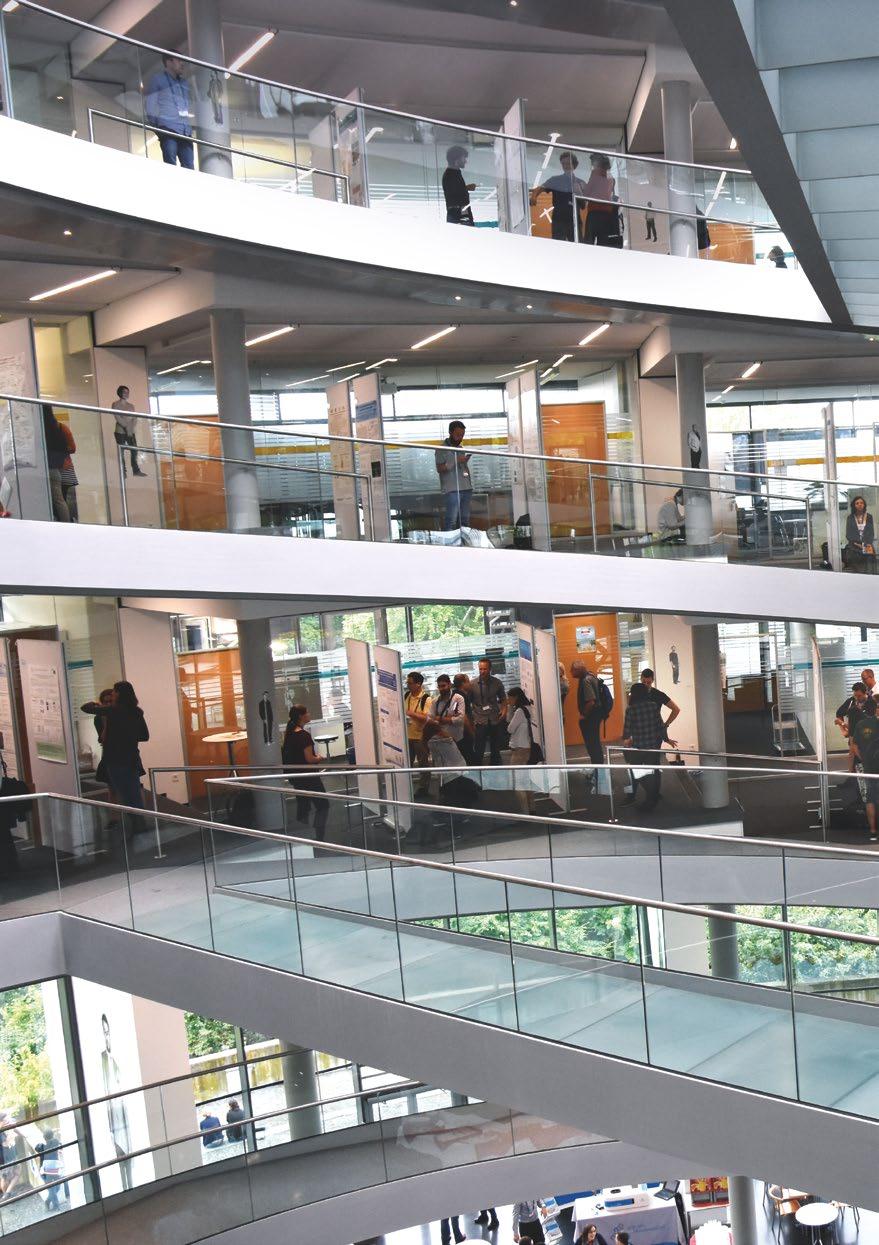
A proven training ground for scientists at all career levels, EMBL provides world-class theoretical and hands-on education in collaborative, interdisciplinary environments. PhD and postdoctoral fellows are immersed in a rich research environment that nurtures new, creative scientific approaches. In particular, EMBL’s EIPOD programme for postdocs instigates and strengthens collaborations with member state institutions. EMBL is also committed to innovative training approaches, leading to new kinds of fellowships, like the ARISE programme, which trains engineers and technology developers to become research infrastructure leaders. Additionally, EMBL’s Scientific Visitors Programme allows for shorter EMBL experiences focussed on in-depth knowledge-sharing, with member state scientists embedded in EMBL’s collaborative, open scientific environment for up to a year.
EMBL’s courses and conferences spotlight diverse scientific leaders to increase research knowhow throughout the whole scientific ecosystem –not just at EMBL. EMBL is also fostering diversity in the researcher pipeline through mentoring opportunities and a career services programme that guides early-career scientists towards paths both in and outside of academia. Additionally, EMBL is committed to sharing its passion for science and knowledge with school children and public audiences alike through its Science Education and Public Engagement (SEPE) activities.
14 Europe’s life sciences laboratory
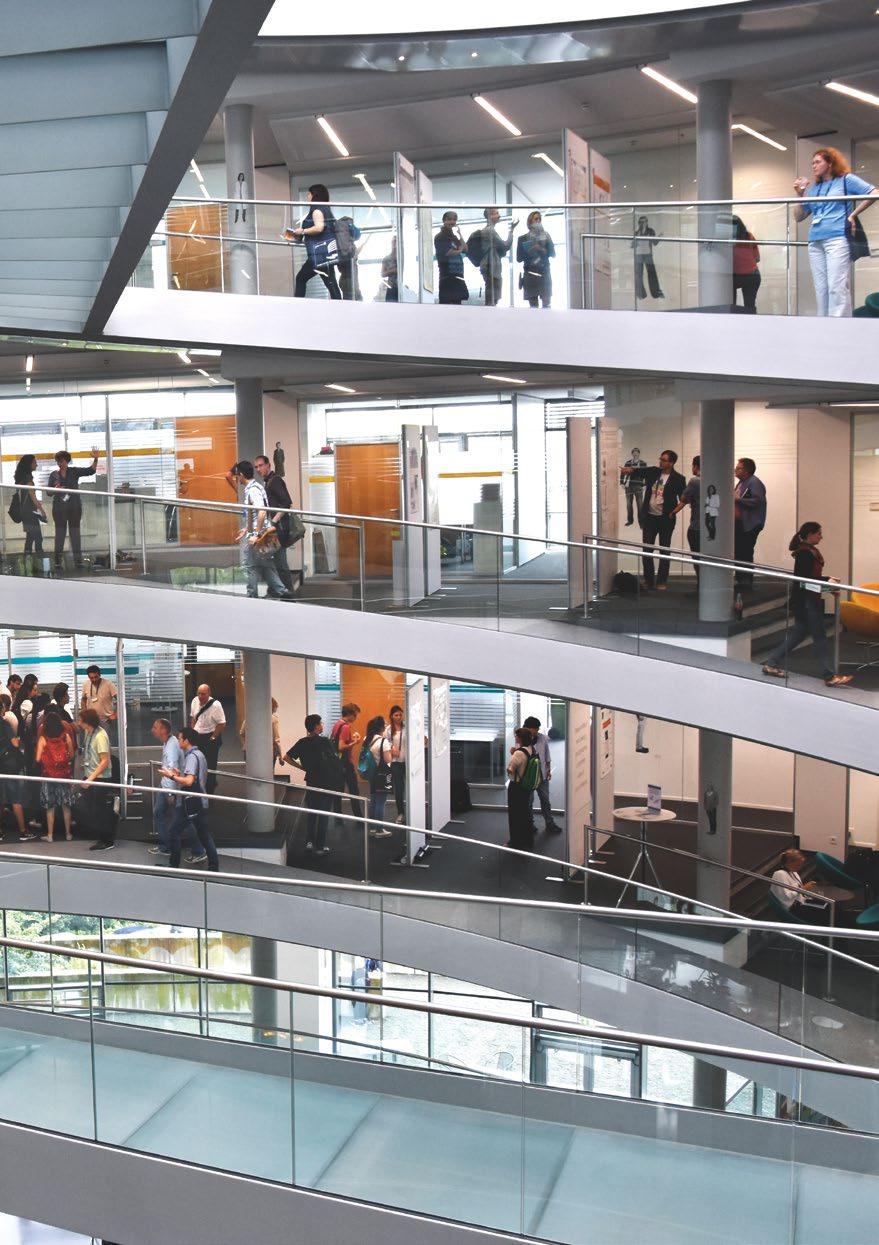
15
Unique fellowships to develop novel technologies for better science
EMBL’s ARISE fellowship programme (Career Accelerator for Research Infrastructure Scientists) provides training for infrastructure scientists who can lead the growing number of core facilities and services in science. Set up to attract a variety of research backgrounds and expertise, ARISE fills a gap in staffing and expertise to run facilities integral to research.
Among the first cohort that started in 2021 is Nicolas Foos, who works in the McCarthy Team at EMBL Grenoble. His fascination for solving 3D structures sparked his interest in the necessary instruments and software, spurring him on to start working at a synchrotron facility.
“After my experience in different places, I became a sort of Swiss army knife, comfortable to work at the lab bench and in service provision,” Foos said. “That’s why the ARISE fellowship seems like the right fit for me.”

Advanced training for next-generation scientists and science leaders: Case study
16
Credit: Mylène Andre/EMBL
Entry points to the science career pipeline
Summer in Science is a scientific programme developed to provide Italian students with the opportunity to experience inquiry-based learning methodologies and laboratory activities.
Co-organised by EMBL Rome and the Adamas Scienza Association, students benefit from a two-week fully-immersive research experience in the fields of neuroscience, epigenetics, genomics, and cellular and molecular biology.
“Being a responsible scientific organisation means thinking about the pipeline for the next generation of scientists,” said Yasmin Serena Secanechia, who helped organise Summer in Science after doing her PhD in EMBL Rome and later joined the communications team at EMBL Heidelberg. “Programmes like Summer in Science aim not only to inform students, but to excite them about a future where they will be the ones making the next big discoveries.”

Advanced training for next-generation scientists and science leaders: Case study
17
Credit: Impronta adv
Support for tech transfer opportunities
EMBL is inherently a place where the earliest seeds of innovative solutions to real-world problems are sown through fundamental research. With the help of EMBLEM, EMBL’s tech transfer arm, this environment creates open innovation, successful public-private partnerships, and spin-offs. Industry can amplify not only these ‘translational’ ideas that offer marketable solutions to a range of societal challenges, but also collaborate with EMBL and other companies through its Corporate Partnership Programme (CPP) that provides for a public-private avenue to jointly develop cutting-edge technologies and solutions.
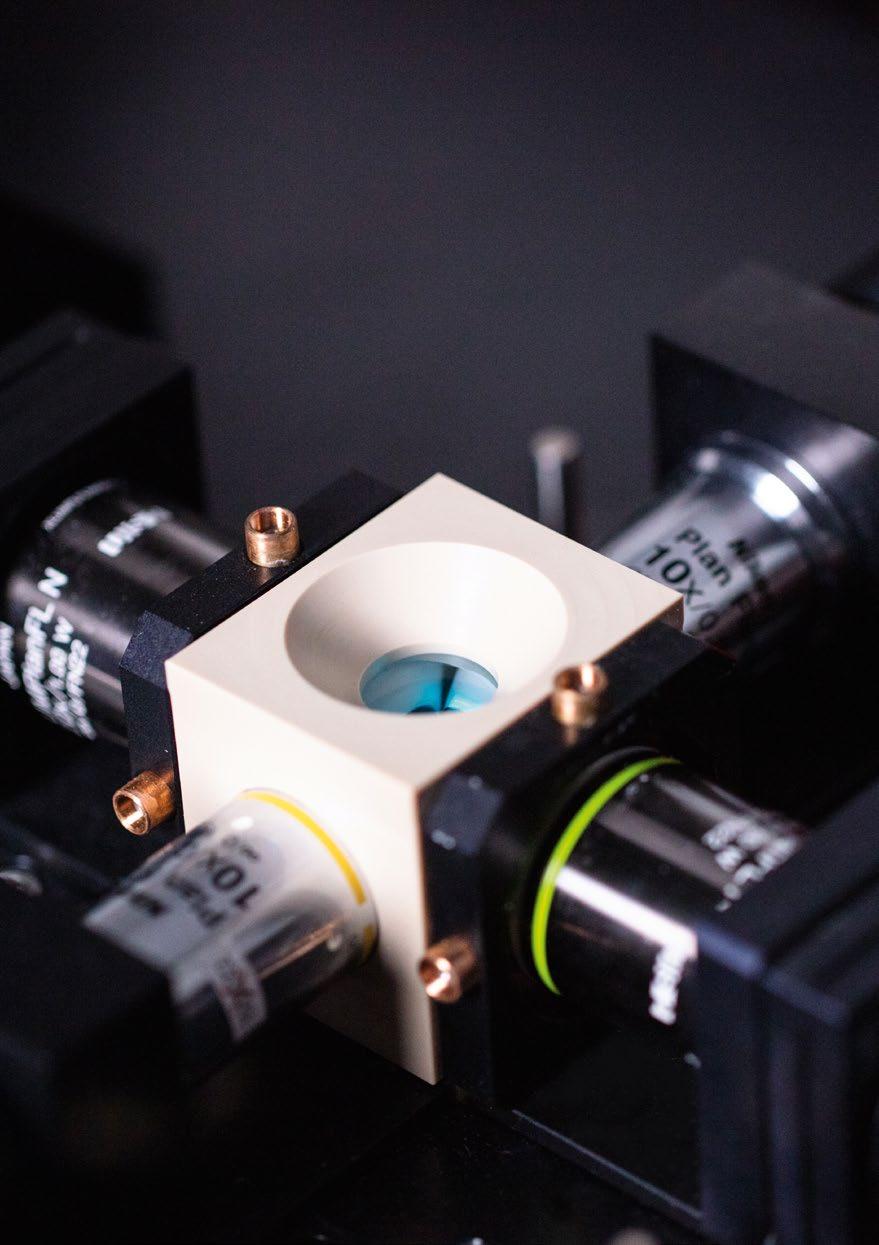
18 Europe’s life sciences laboratory
Innovation seeding a path for more efficient drug development
Identifying drug targets is a complex yet crucial process in the life sciences. Open Targets is an innovative partnership between academia and the private sector that aims to systematically identify and prioritise drug targets. The vision is to help develop safe, effective medicines for human disease with a focus on immunology, cancer, and neurodegeneration. Open Targets publishes novel experimental data and informatics analyses, and has open source informatics resources that provide integrated data and tools for the broader scientific community to help explore therapeutic hypotheses.

In 2020, Ellie McDonagh joined Open Targets as its Informatics Science Director, wanting to ensure it is always at the cutting edge of drug target discovery and development.
“Open Targets is in a unique position: we bring together academic researchers at the cutting edge of scientific discovery and data knowledge services, pharmaceutical target discovery scientists and computational biologists, and a core team with critical statistical analysis and informatics expertise,” said McDonagh. “Through the consortium, we work together to support target identification and prioritisation, with the ultimate goal of making safer and more effective treatments for disease.”
19 Support for tech transfer opportunities: Case study
Credit: Massimo Del Prete/EMBL
Science leadership in Europe and worldwide
EMBL has 27 member states and collaboration is a vital principle of EMBL’s activities. EMBL works to establish links and initiate joint projects between and among scientists in Europe and beyond. Collaborative research, shared infrastructures, as well as open science and knowledge sharing between the member states and other international partners are important investments EMBL makes for the future. EMBL also fosters this international collaboration between scientific communities in Europe and around the world by playing a role in advising international and national actors on scientific strategy and policy to make the voice of life sciences heard on the international arena. The result is a network of stakeholders who deliver more cohesive research with scientific, societal, and political benefits for partners globally.

20 Europe’s life sciences laboratory

21
European partners embark on collaborative coastal ecosystem exploration

The TREC expedition (Traversing European Coastlines) is EMBL’s flagship project to study life in its natural context. TREC brings molecular and cellular biology together with environmental research to further scientific knowledge and address urgent planetary and societal challenges. The highly collaborative EMBL-led project is only possible due to the joint efforts of numerous European partner organisations, such as Tara Ocean Foundation, the European Marine Biological Resource Centre, Ifremer, CNRS, Stazione Zoologica Anton Dohrn, and more than 50 other institutions from Europe and beyond.
Beginning in 2023, TREC researchers are gathering biological, environmental, and biogeochemical data along the European coastlines at 120 land-sea transects. This transnational expedition crosses borders and disciplines to combine ocean exploration with parallel sampling of soil, sediment, shallow water, and selected model organisms in various habitats. TREC researchers as well as member state scientists who are part of ‘plug-in projects’ will be supported by EMBL’s land-based mobile services and local marine research institutions. Additionally, all collected data will be made freely and openly available by EMBL-EBI data resources.
Expedition Manager. “EMBL is well positioned to lead this because of its intergovernmental status and large network of collaborators and partners.”
“Given the scale and urgency of human and planetary health challenges, it is important for EMBL to organise this large pan-European, highly collaborative and cross-disciplinary project,” said Paola Bertucci, TREC Scientific
22 Science leadership in Europe and worldwide: Case study
Credit: Hugo Berthelot/EMBL
Credit: Paola Bertucci/EMBL
Credit: Paola Bertucci/EMBL

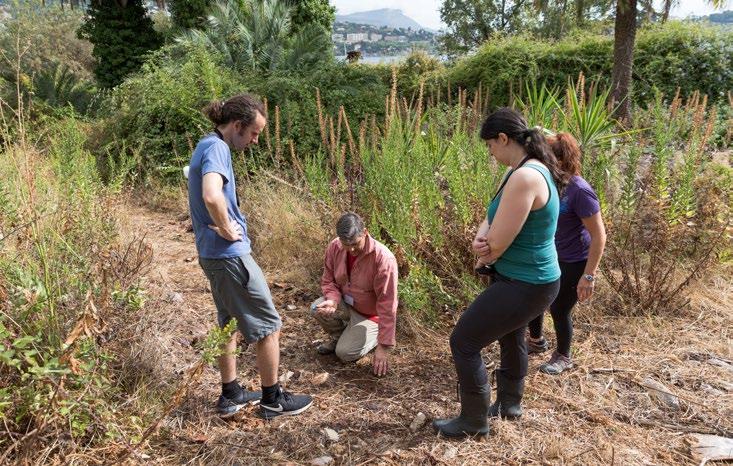
23 Science leadership in Europe and worldwide: Case study
‘Twinning’ and winning via European scientific collaboration
It’s the best of all symbiotic relationships when EMBL and its partners collaborate on science. In this case, thanks to Horizon 2020 Twinning Widening Action funding, EMBL has several partners in its member states working collectively on a project known as SymbNET, which advances host-microbiome symbiosis research.
EMBL partnered with the Portuguese Instituto Gulbenkian de Ciência (IGC), University of Kiel (Germany), University of Lausanne (Switzerland), and ITQB NOVA Lisbon (Portugal) on this research endeavour, which enables Portuguese researchers to expand their research and training capacities in microbiota research, forming a powerful European network of excellence in this field. Under Horizon 2020, EMBL secured funding for five Twinning projects with partners from nine countries, resulting in research hubs throughout Europe underpinned by sustainable funding.
As in any good cooperative relationship, everyone benefits. And the collaboration with IGC has only grown further as the two institutes are aspiring to establish a more formal partnership focusing on the topic of One Health. This will epitomise EMBL’s vision of contributing to Europe’s ecosystem of scientific excellence by sharing EMBL’s networks, infrastructure, and expertise – especially in the context of EMBL’s 2022–2026 Programme, ‘Molecules to Ecosystems’.
“EMBL is a hub for collaboration and creativity,” said Plamena Markova, EMBL’s Head of International Relations. “Our own knowledge and talent are nurtured as well when we create partnerships and help countries establish EMBL-like institutes. We work very closely with our member states to capitalise on their national scientific strengths and build transformative joint initiatives with impacts on both science and society.”
24 Science leadership in Europe and worldwide: Case study

25 Science leadership in Europe and worldwide: Case study
Credit: Krisztina Arató/EMBL, Creative Team/EMBL
People, processes, and places
EMBL is continuously looking at ways to improve the way research is done. Consequently, administrative and operational teams help move the organisation forward in areas like sustainability; equality, diversity, and inclusion; open science; and research assessment.

EMBL’s staff-led Sustainability Strategy has provided ways to significantly reduce environmental impacts by 2030 with goals of reducing energy consumption, use of plastics in labs, and work-related travel. EMBL’s Equality, Diversity, and Inclusion Strategy aims to create a more inclusive research and work culture that leverages diversity in its broadest sense.
EMBL’s Open Science Policy provides for databases and software to be made freely available wherever possible and encourages open access publication. And because EMBL recognises the value of a broad range of scientific outputs and the need to assess them based on their intrinsic merit, it has adopted the principles of the Declaration on Research Assessment (DORA).
26 Europe’s life sciences laboratory
The road to more sustainable science
Over the past two years, EMBL has worked hard to lay the groundwork to become a sustainable organisation. In 2021, EMBL launched its first Sustainability Strategy, and since then, Brendan Rouse, Environmental Officer and Marta Rodríguez-Martínez, Sustainability Officer, have been interacting with multiple departments and teams across EMBL to develop the necessary plans to achieve EMBL’s sustainability objectives, including building a strong sustainability culture.
“ We are very excited that EMBL has begun its involvement with a sustainability program, designed specifically for labs – Laboratory Efficiency Assessment Framework (LEAF),” Rodriguez-Martinez said. “LEAF was developed as an online guide and self-assessment tool to encourage lab groups to become more sustainable, so we’re working with group leaders to see this adopted here. By adopting sustainable research practices, the participating groups will reduce their costs, operate more efficiently, and decrease their environmental impact.”

27 People, processes, and places: Case study
Credit: Stuart Ingham/EMBL
The images above were created by EMBL scientists and staff. To download high resolution versions and view image credits please visit: bit.ly/3PFWDNn


Publisher
EMBL, February 2023
Divider page image credits
Creative Team/EMBL, Paola Bertucci and Hernando Martinez Vergara/EMBL, Kinga Lubowiecka/EMBL, Adobe Stock, Jeff Dowling/EMBL
Printer
MeraDruck
Cover image
Particle flow tracked over time in 3D human microvessels grown in vitro.



Credit: Akinola Akinbote/EMBL

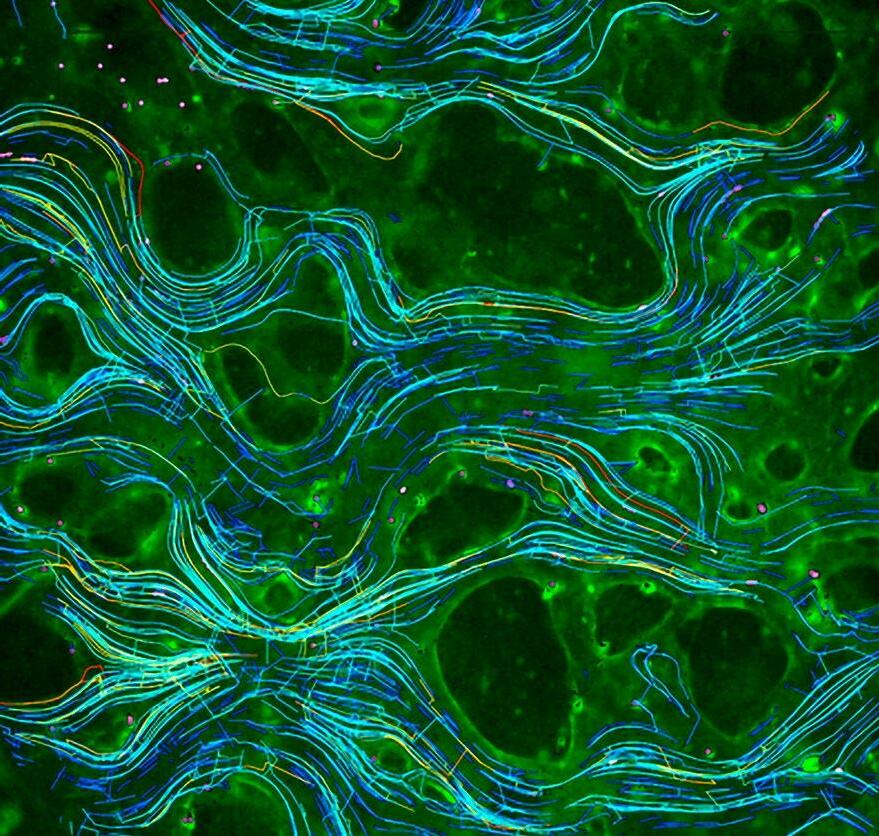
Learn more about EMBL by visiting our website. Follow us: +49 6221 3870 www.embl.org info@embl.org



 Hamburg
Hamburg



































